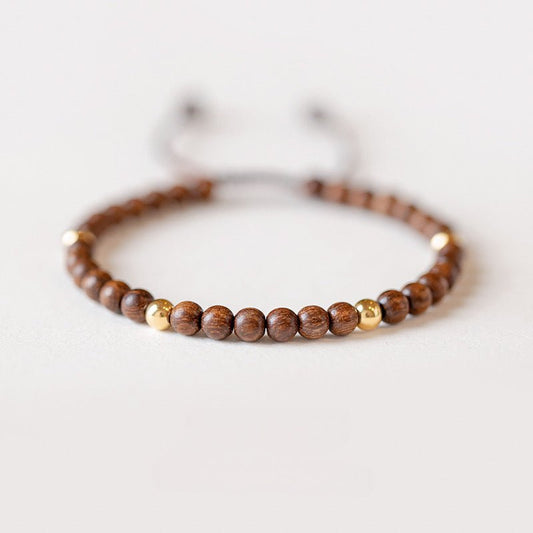The 12 Earthly Branches in Chinese Zodiac: Everything You Need to Know

Introduction: The Foundation of Chinese Zodiac 🌏✨
The Chinese Zodiac is an ancient system that plays a key role in Chinese culture and astrology. It consists of 12 animals, each representing specific personality traits, fortune, and destiny for individuals born under that sign. However, there is a deeper layer to the Chinese Zodiac — one that involves the 12 Earthly Branches, a system that is just as integral to Chinese astrology, fortune-telling, and even timekeeping. 🌟
The 12 Earthly Branches are deeply connected to the cyclical nature of Chinese timekeeping, intertwining with the 10 Heavenly Stems to create a 60-year cycle, often referred to as the sexagenary cycle. This system is not just a way of telling time but also an important framework for understanding one’s fate, compatibility, and other astrological elements.
In this article, we’ll delve into the history, significance, and influence of the 12 Earthly Branches. From their connection to ancient traditions to their impact on your zodiac sign and fortune, let’s explore how these Earthly Branches shape Chinese astrology and our lives today. 🐉🔮

What Are the 12 Earthly Branches? 🐀🐂🐅
The 12 Earthly Branches (地支, Dì Zhī) are a system used in Chinese astrology to represent not just the 12-year cycle but also the deep connection to the natural world, seasons, and the underlying patterns of the universe. Each Earthly Branch corresponds to one of the 12 Zodiac animals, and they help provide a foundation for timekeeping, calendar systems, and astrological calculations.
The 12 Earthly Branches are as follows, each linked to a specific Zodiac animal:
-
Zi (Rat) 🐀
-
Chou (Ox) 🐂
-
Yin (Tiger) 🐅
-
Mao (Rabbit) 🐇
-
Chen (Dragon) 🐉
-
Si (Snake) 🐍
-
Wu (Horse) 🐎
-
Wei (Goat) 🐐
-
Shen (Monkey) 🐒
-
You (Rooster) 🐓
-
Xu (Dog) 🐕
-
Hai (Pig) 🐖
These Earthly Branches form a 12-year cycle, just like the traditional 12 Zodiac animals. But the Earthly Branches have a deeper significance, influencing many aspects of Chinese astrology beyond just the year of birth. These branches are connected to time, seasons, and yin-yang energy, and they influence personal traits, career paths, relationships, and even health.
The 12 Earthly Branches work in tandem with the 10 Heavenly Stems (天干, Tiān Gān) to form the 60-year cycle. Each year, one of the Earthly Branches is paired with one of the Heavenly Stems to create a unique combination. For instance, 2024 will be a Wood Rat year, while 2025 will be a Wood Ox year. This unique pairing defines the characteristics of the year and can help predict personal fortune.
Historical and Cultural Significance of the 12 Earthly Branches 🏺🕰️
The 12 Earthly Branches have an extensive history, dating back thousands of years to ancient Chinese culture. They were not just used for astrology, but also for practical purposes such as timekeeping and calendar systems. In ancient China, the Earthly Branches played an essential role in daily life, farming, and even governance. Let’s look at how these Earthly Branches evolved and shaped Chinese culture.
-
The Connection to Timekeeping:
The Earthly Branches were used as a form of timekeeping, where each branch represented a two-hour period in the day. This system helped divide the day into 12 sections, with each Earthly Branch associated with a particular time of day. For example, Zi (Rat) is associated with the 11:00 PM – 1:00 AM period, while Chou (Ox) represents 1:00 AM – 3:00 AM. This was an integral part of the Chinese way of measuring time. -
The Role in Agriculture:
The Earthly Branches are also deeply connected to the seasonal cycle and agriculture. In traditional Chinese farming, the Earthly Branches aligned with different seasonal changes, affecting planting and harvesting schedules. For instance, Mao (Rabbit), which corresponds to spring, represented a time for growth, while Chen (Dragon), associated with the spring-summer transition, symbolized abundance and vitality. -
Their Use in Ancient Chinese Calendars:
In ancient China, the Earthly Branches helped form the foundation for the Chinese calendar system, which was widely used by emperors to schedule festivals, political events, and even military campaigns. The calendar was essential for maintaining harmony with the natural world and ensuring the prosperity of the empire. The 12 Earthly Branches were used to represent the months, days, and years, helping to organize the rhythm of life.
How the 12 Earthly Branches Influence Chinese Astrology 🔮🐾
In Chinese astrology, the Earthly Branches are not just a way to calculate the year you were born; they play a fundamental role in determining your personality traits, fortune, and compatibility with others. Each of the 12 Earthly Branches is associated with one of the 12 Zodiac animals, which helps define your character and influences your destiny. But beyond the animals themselves, the Earthly Branches represent more complex layers of energy, yin-yang forces, and elemental influences. 🌑🌞
-
Earthly Branches and Personality Traits:
Each Earthly Branch is connected to specific traits and qualities. For instance, people born under the Zi (Rat) branch are known for their intelligence, adaptability, and resourcefulness. People born under Chou (Ox) are recognized for their hard work, loyalty, and methodical approach. The personality traits associated with each Earthly Branch are deeply intertwined with the elemental influences of wood, fire, earth, metal, and water, which in turn shape one’s character. -
The Role of Yin and Yang:
The Earthly Branches are also connected to the principles of yin (feminine energy) and yang (masculine energy). For example, the Rat (Zi) and Rabbit (Mao) are considered yin animals, representing gentleness, receptivity, and intuition. In contrast, the Tiger (Yin) and Horse (Wu) are yang animals, embodying assertiveness, strength, and dynamism. This balance between yin and yang energy is central to the Chinese understanding of the universe and human life. -
Influence on Life Events and Fortune:
The Earthly Branches help define one’s luck and fortune throughout life. For example, certain years are considered more favorable for people born under specific Earthly Branches, based on the interaction between the year’s Earthly Branch and the individual’s birth branch. For example, a Rat (Zi) may have better luck during the Ox (Chou) year, as these two Earthly Branches are considered harmonious. Similarly, some Earthly Branches are incompatible, which can influence personal challenges or difficulties in relationships.
The Connection Between the 12 Earthly Branches and the 10 Heavenly Stems 🔢🌌
The 10 Heavenly Stems (天干, Tiān Gān) work hand in hand with the 12 Earthly Branches to form the sexagenary cycle — a 60-year cycle that is fundamental to Chinese astrology. While the Earthly Branches correspond to animals, the Heavenly Stems correspond to the five elements: Wood, Fire, Earth, Metal, and Water. By combining both systems, Chinese astrology creates a complete framework to predict life events, personality traits, and more. 🌓
-
The 60-Year Cycle:
Every year in the sexagenary cycle is formed by pairing one of the 12 Earthly Branches with one of the 10 Heavenly Stems. For instance, 2024 will be the Wood Rat year (Wood is associated with the Heavenly Stem Jiǎ, and Rat is associated with the Earthly Branch Zi). After 60 years, the cycle repeats itself. This combination influences both the elemental energy of the year and the animal’s traits, giving a unique quality to each year. -
Elemental Influence:
The pairing of the Earthly Branches with the Heavenly Stems also brings elemental influence into play. For instance, Wood is associated with growth and renewal, Fire with passion and intensity, Earth with stability and grounding, Metal with strength and clarity, and Water with adaptability and wisdom. These elements influence how the characteristics of each Zodiac animal manifest in a given year.
Personality Traits of Each Earthly Branch 🧑🤝🧑✨
Now that we have covered the historical, cultural, and foundational aspects of the 12 Earthly Branches, let's explore the personality traits associated with each Earthly Branch. Understanding these traits can provide deeper insights into the behavior, fortune, and characteristics of people born under each specific branch. As we dive into these profiles, keep in mind that each branch is associated with a particular Zodiac animal, which enhances the significance of these traits. 🌱
-
Zi (Rat) 🐀
People born under the Rat are often intelligent, adaptable, and charming. They are known for their quick thinking and resourcefulness, able to navigate challenges with ease. Rats are also highly social and have a magnetic personality, making them great communicators. However, they can also be a bit cautious or calculating at times, preferring to take calculated risks. -
Chou (Ox) 🐂
The Ox represents hard work, loyalty, and determination. Individuals born under this Earthly Branch are often patient, methodical, and possess a strong sense of responsibility. They are seen as reliable and steadfast, often excelling in tasks that require persistence. However, Oxen can sometimes be perceived as stubborn or inflexible, especially when faced with new ideas. -
Yin (Tiger) 🐅
Tigers are synonymous with courage, passion, and confidence. People born under the Tiger are natural leaders with a strong will and a desire to succeed. They are bold, adventurous, and full of energy. However, Tigers can sometimes be impulsive and quick-tempered, needing to balance their fiery energy with more patience and caution. -
Mao (Rabbit) 🐇
Rabbits are known for their gentleness, creativity, and compassion. People born under this Earthly Branch are often seen as peaceful, artistic, and sensitive. They excel in environments that require nurturing or creativity and enjoy harmony. However, Rabbits can sometimes be overly cautious or easily influenced, often avoiding conflict and confrontation. -
Chen (Dragon) 🐉
The Dragon is a symbol of power, charisma, and ambition. People born under the Dragon branch are often seen as dynamic, innovative, and independent. Dragons are natural-born leaders who are driven by success and the pursuit of greatness. However, their powerful nature can sometimes lead to arrogance or an overly dominant personality. -
Si (Snake) 🐍
People born under the Snake are considered wise, mysterious, and intuitive. Snakes possess a deep sense of introspection and calm and often have a knack for understanding the hidden motivations of others. While Snakes are often seen as charming and seductive, they can also be secretive and suspicious, preferring to keep their true thoughts to themselves. -
Wu (Horse) 🐎
The Horse represents energy, independence, and enthusiasm. People born under this branch are often dynamic, freedom-loving, and full of vigor. Horses excel in fast-paced environments and enjoy taking on new challenges. However, they can be restless, impatient, and sometimes too impulsive in their decisions. -
Wei (Goat) 🐐
The Goat is associated with creativity, compassion, and peacefulness. People born under this Earthly Branch are generally gentle, artistic, and thoughtful. Goats enjoy calm, tranquil environments and have a deep appreciation for beauty. However, they may sometimes struggle with indecision or lack of assertiveness, preferring to avoid conflict. -
Shen (Monkey) 🐒
Monkeys are known for their intelligence, wit, and curiosity. People born under the Monkey branch are often playful, clever, and quick-thinking. Monkeys excel in environments where creativity and problem-solving are valued. However, they can sometimes be restless or deceptive, as their quick minds may lead them to manipulate situations to their advantage. -
You (Rooster) 🐓
Roosters are considered confident, organized, and honest. People born under the Rooster are often seen as meticulous, hard-working, and straightforward. They take pride in their work and are always eager to make a good impression. However, they can be overly critical and perfectionistic, often seeking out flaws where none may exist. -
Xu (Dog) 🐕
The Dog represents loyalty, honesty, and protectiveness. People born under this Earthly Branch are often reliable, trustworthy, and have a strong sense of duty. Dogs are highly compassionate and enjoy protecting their loved ones. However, they can sometimes be anxious or overly suspicious, especially when it comes to matters of trust. -
Hai (Pig) 🐖
Pigs are known for their generosity, optimism, and kindness. People born under the Pig are often seen as honest, easy-going, and good-natured. They have a natural ability to bring joy and positivity to their surroundings. However, Pigs can sometimes be too trusting or naive, and they may face challenges when confronted with deceit or manipulation.
The Earthly Branches in Chinese Festivals and Traditions 🏮🎊
The 12 Earthly Branches also play a significant role in Chinese festivals, customs, and traditional beliefs. These branches, tied to specific seasons and natural elements, guide cultural practices, celebrations, and even astrological compatibility. Let’s take a look at how the Earthly Branches are celebrated and referenced in Chinese traditions:
-
Chinese New Year:
Chinese New Year is perhaps the most well-known celebration involving the 12 Earthly Branches. Each year is associated with one of the Earthly Branches (and the corresponding Zodiac animal), and the start of the year marks a fresh cycle of fortune, change, and new opportunities. Families honor the Earthly Branches through rituals meant to bring prosperity and harmony to the year ahead. -
The Chinese Calendar and Agricultural Festivals:
Since the Earthly Branches were used for timekeeping and agricultural planning, many traditional festivals like the Qingming Festival (Tomb Sweeping Day) and the Mid-Autumn Festival are closely tied to the seasonal changes indicated by the Earthly Branches. These festivals mark the turning of the year, from spring planting to autumn harvest, and reflect the cyclical nature of life and nature itself. -
Astrological Compatibility:
In traditional Chinese astrology, compatibility between Earthly Branches is a major consideration in marriage, partnerships, and even business relationships. Certain branches are seen as more harmonious, while others are believed to clash. For example, Rat (Zi) and Ox (Chou) are believed to have good compatibility, while Tiger (Yin) and Monkey (Shen) are often seen as incompatible, based on their elemental and energetic interactions. -
Lucky and Unlucky Years:
Some years, based on the Earthly Branches, are considered particularly lucky, while others might bring challenges. People born under certain Earthly Branches may experience better fortune during years that correspond harmoniously with their birth branch, while other years might require more caution and careful planning.
How the 12 Earthly Branches Influence Daily Life 💫📅
The 12 Earthly Branches influence more than just astrology and fortune-telling; they impact daily life in various ways, including career choices, relationships, and even health. Here's how the Earthly Branches manifest in your everyday experience:
-
Career and Professional Life:
People born under certain Earthly Branches often gravitate toward specific types of careers. For example, individuals born under the Ox (Chou) are often drawn to stable, practical careers like banking, farming, or engineering. Those born under the Monkey (Shen) are often suited for careers in creative fields like advertising, entertainment, or technology, where innovation and problem-solving are key. -
Personal Relationships:
The Earthly Branches play a role in compatibility in relationships, whether in friendship or romance. People born under certain Earthly Branches, such as Rat (Zi) and Ox (Chou), may find themselves naturally compatible, while others, like Tiger (Yin) and Snake (Si), may have to work harder to understand each other. The natural energies of each branch — yin or yang, fire or water — affect how individuals interact and support one another. -
Health and Well-being:
The Earthly Branches are also associated with health. For example, people born under the Dragon (Chen) or Horse (Wu) may have more energetic or extroverted personalities, which can sometimes lead to stress or burnout. Conversely, those born under the Rabbit (Mao) or Goat (Wei) branches might prefer calmer environments and could be more prone to health issues related to stress or anxiety. Understanding your Earthly Branch can help you align your lifestyle for better physical and emotional well-being.
Conclusion: Embracing the 12 Earthly Branches for Insight and Understanding 🌍🔮
The 12 Earthly Branches in the Chinese Zodiac offer a profound lens through which to understand yourself, others, and the world around you. These branches are more than just markers of time — they are keys to unlocking the mysteries of personality, fortune, and destiny. Whether you are looking to understand your own Earthly Branch or gain insight into others, embracing the wisdom of this ancient system can provide you with a deeper connection to your life path and the world at large.
By learning about the Earthly Branches, we not only connect to an ancient tradition but also gain practical tools to help us navigate the modern world. May the wisdom of the Earthly Branches guide your journey! 🌠🐾
FAQ Section:
-
What are the 12 Earthly Branches in Chinese astrology?
The 12 Earthly Branches are part of the Chinese astrological system, each associated with one of the 12 Zodiac animals and representing different traits, seasons, and time cycles. -
How do the Earthly Branches affect my personality?
Your Earthly Branch influences your traits, behaviors, and the overall direction of your life. Each branch brings unique characteristics and qualities that align with the Zodiac animal it corresponds to. -
Can my Earthly Branch influence my relationships?
Yes, the compatibility between different Earthly Branches plays a significant role in personal and romantic relationships. Understanding your branch can provide insight into how you relate to others.

























































